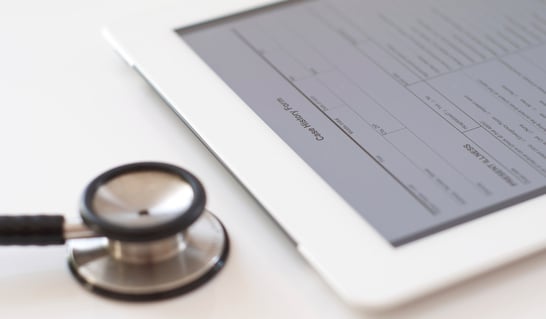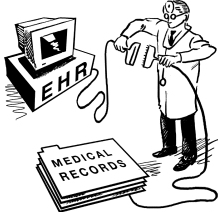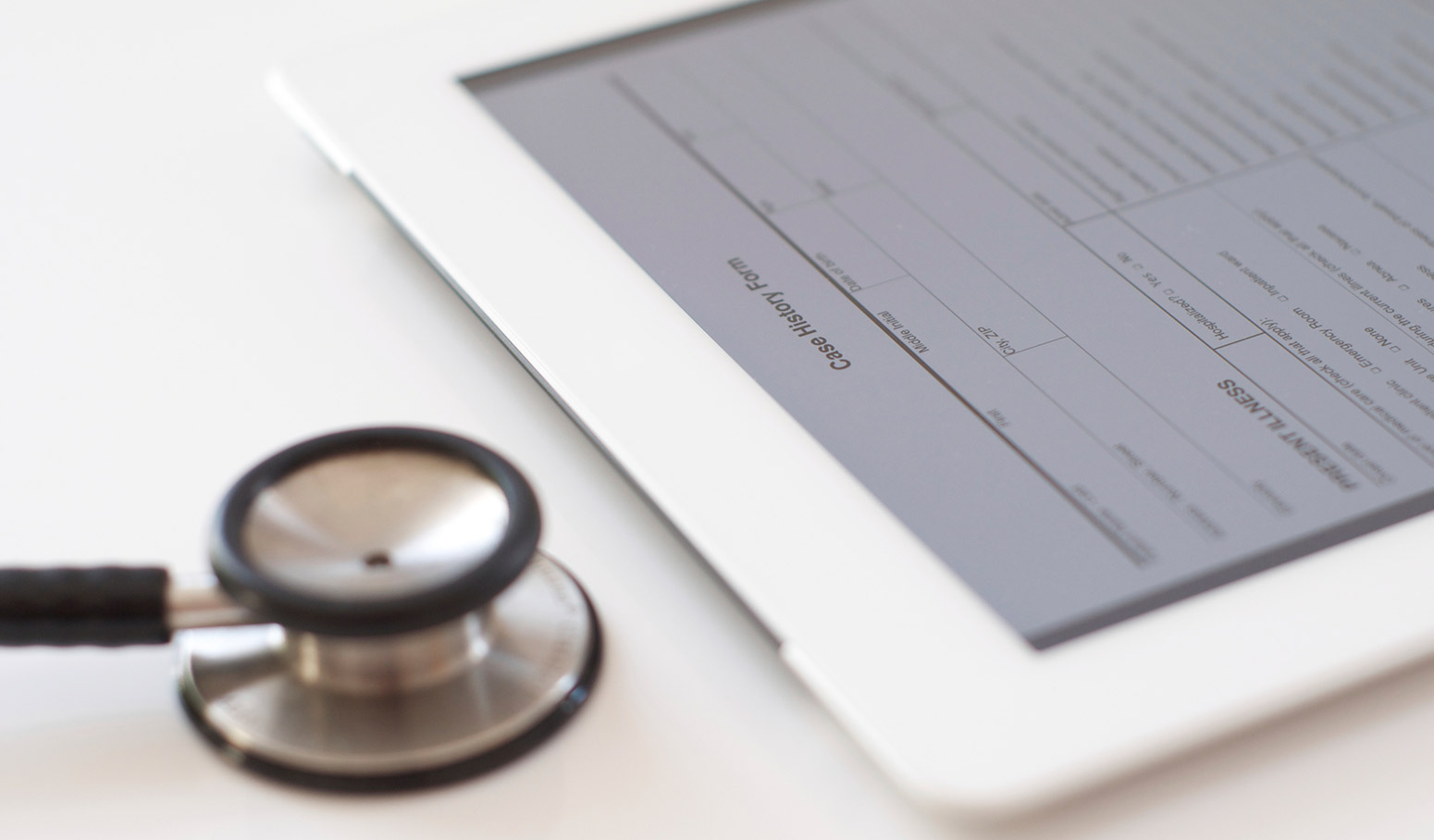 In the 1960's colleges in the United States began to develop software that could be used for electronic medical records. It took until the 1990's before a usable program was initially implemented. This article will address the major pros and cons.
In the 1960's colleges in the United States began to develop software that could be used for electronic medical records. It took until the 1990's before a usable program was initially implemented. This article will address the major pros and cons.
PROS
- Information available to medical facilities is very complete including demographics, personal information, billing information, diagnoses, surgeries, allergies, lab results, x-rays, smoking status, vitals, medications prescribed and those discontinued.
- Medications can be renewed or prescribed directly to the pharmacy for pick up by the patient. Unusual reactions to medications can be noted and avoided in the future.
- Access to any area of the record can be obtained by using a search word and/or using tabs.
- In case of an emergency records are immediately available to the treating medical team for use in treatment. This alone can save lives.
- Limited access by insurance companies for preauthorization of procedures.
- Legibility is a given and it's no longer necessary to try and read medical personnel handwriting.
- The reduction of paper files has been a real boost to the ecology. Disuse of paper files has had a major favorable impact. Paper records for over 340 million patients is a lot of paper.
- Patients have access to appointments, lab results, medications and other information through patient portals.

CONS
- Security is somewhat of an issue as there have been thousands of breeches over the years and with HIPPA in effect good security is mandatory.
- Power outages affecting computer systems could be a major problem if you don't have a backup generator. Loss of the internet due to sun spots or some other issue could be disastrous.
- Records can be accessible to anyone in the facility with a password.
- Start up, maintenance and training costs are very high. Upwards of $30,000 - $50,000 startup and $8,500 per year maintenance per provider.
- Patients are seen less often which can depersonalize patient-provider interaction. Also, providers spend so much time looking into records on the computer, that it detracts from patient care and attention.
- There are many electronic medical record systems available and they don't necessarily interact. This means the primary provider may have a different system than the local hospital and the necessary information is not available. This results in having to print out the records and fax or email them. Leading to a major delay in patient treatment which could make the difference in life or death. It can also lead to incorrect treatment because of unknown diseases, allergies or other issues.
- If lawyers looking for reasons to bring suit can find a medication entered wrong or some other mistake can give them a distinct advantage.
This is just a basic overview of the Pros and Cons of Electronic Medical Records. Do you have more to add?
Related Article: Complaints About Electronic Medical Records Increase
If you enjoy our blog articles, you will love our newsletter! Sign up below.







